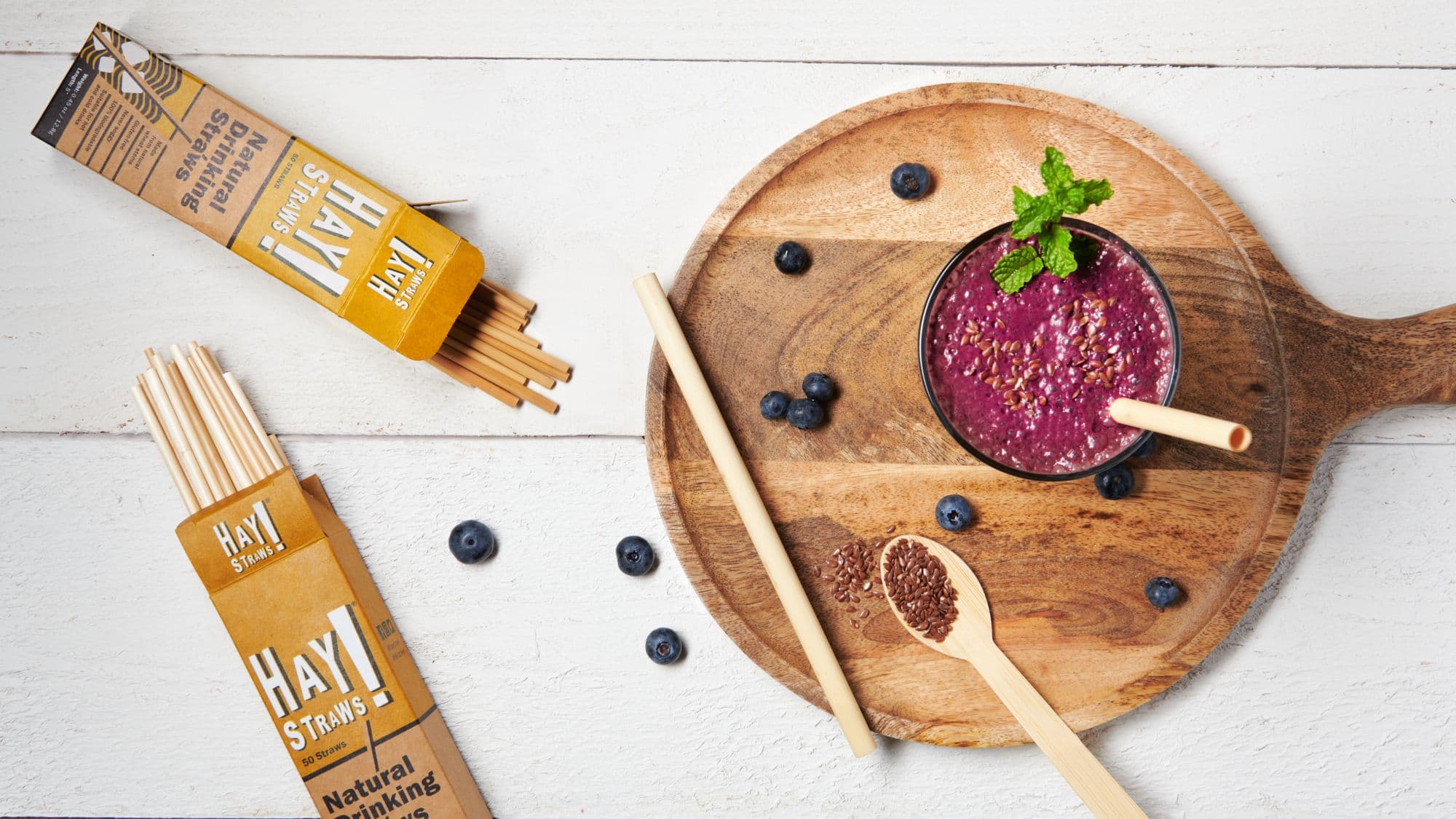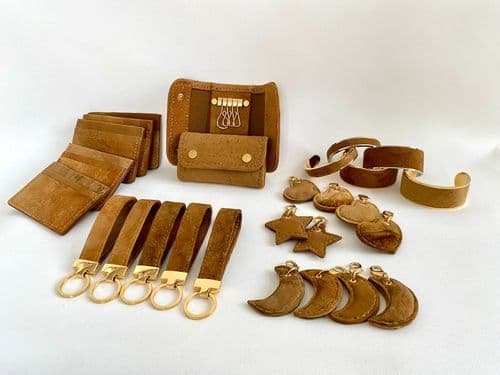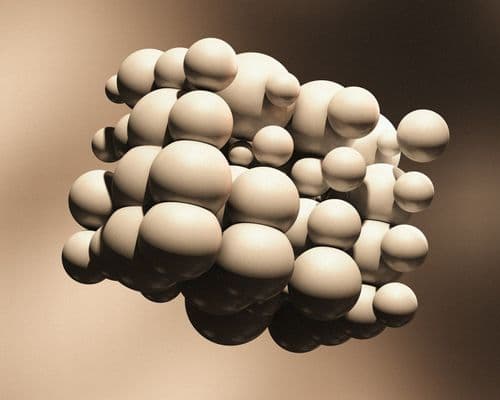What are the specific properties of wheat and reed stems that make them ideal materials for biodegradable straws compared to other bioplastics or paper options?
HAY! Straws are manufactured from actual plant stems, and not from pulp or a composite material like paper or bioplastics. This makes them 100% natural and readily compostable in any environment because it is like throwing a piece of wheat or a twig into the compost.
Our Original wheat stem straw breaks down in just 42 days as documented in our BPI test report. We do not add any chemicals, coatings, or binders to the product and all HAY! straws are PFAS-free (which can't be said for paper straws). Wheat and reed plant stems (straws) are naturally water and heat-resistant, so they won't dissolve or fall apart in your drink.
Another bonus is that we are using a byproduct of wheat production, the wheat stems, and the reed straws are made from a renewable source. Rather than cutting down mature forests (paper) or using GMO plants (bioplastics) to make the product.
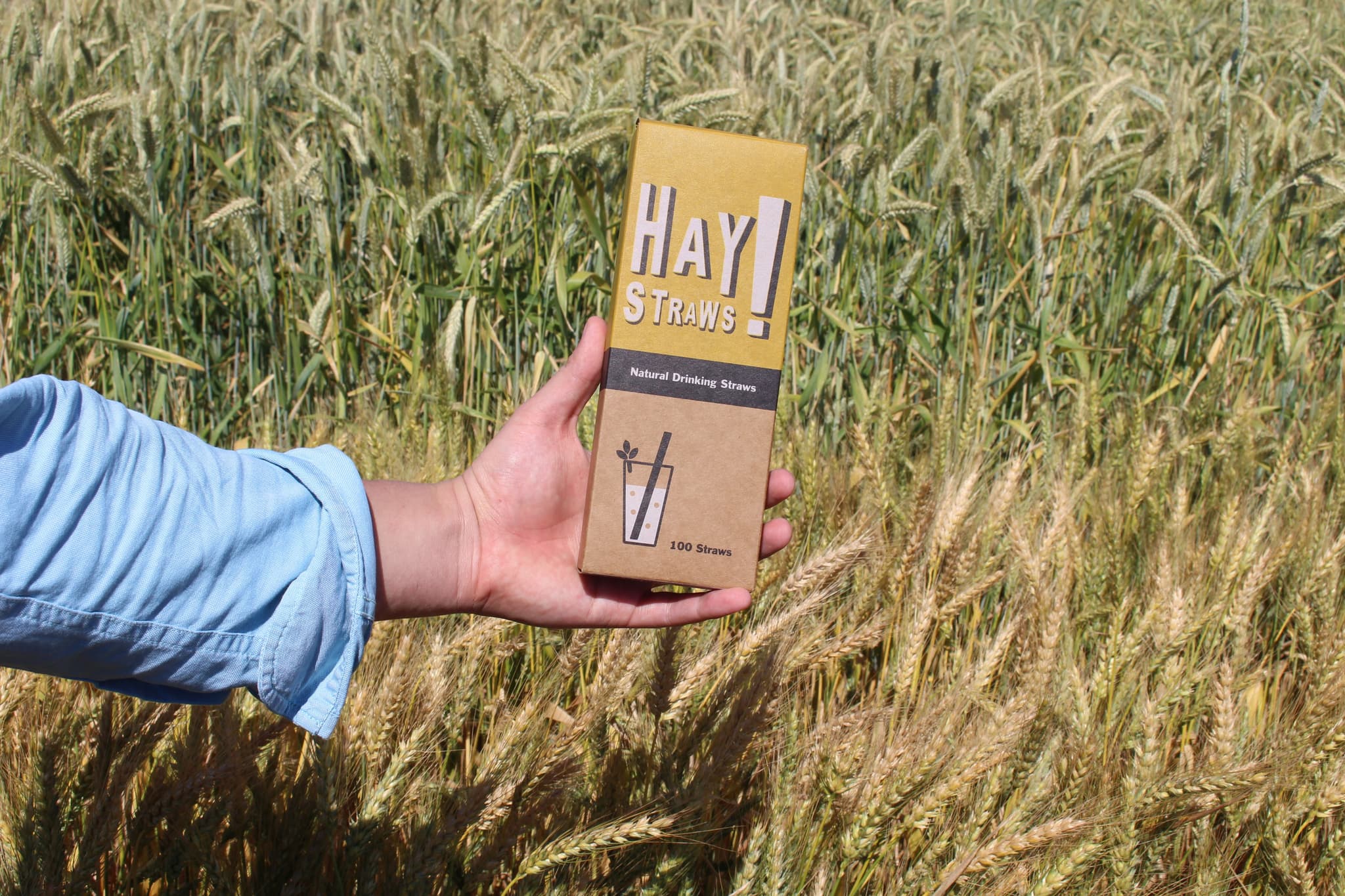
Can you elaborate on the drying and sterilisation process for HAY! Straws® and how it ensures the straws are safe and hygienic for consumer use?
All our wheat stems are cut to size, soaked in water and rinsed multiple times before going through a high-heat, food-grade dryer. The high heat kills microbes and bacteria.
HAY! Straws have been independently lab tested to comply with food safety standards Migration testing (EU) No. 10/2011 and passed Antimicrobial Components testing for Paper and Paperboard in Contact with Foodstuffs – Council of Europe, Resolution ResAP(2002)1.
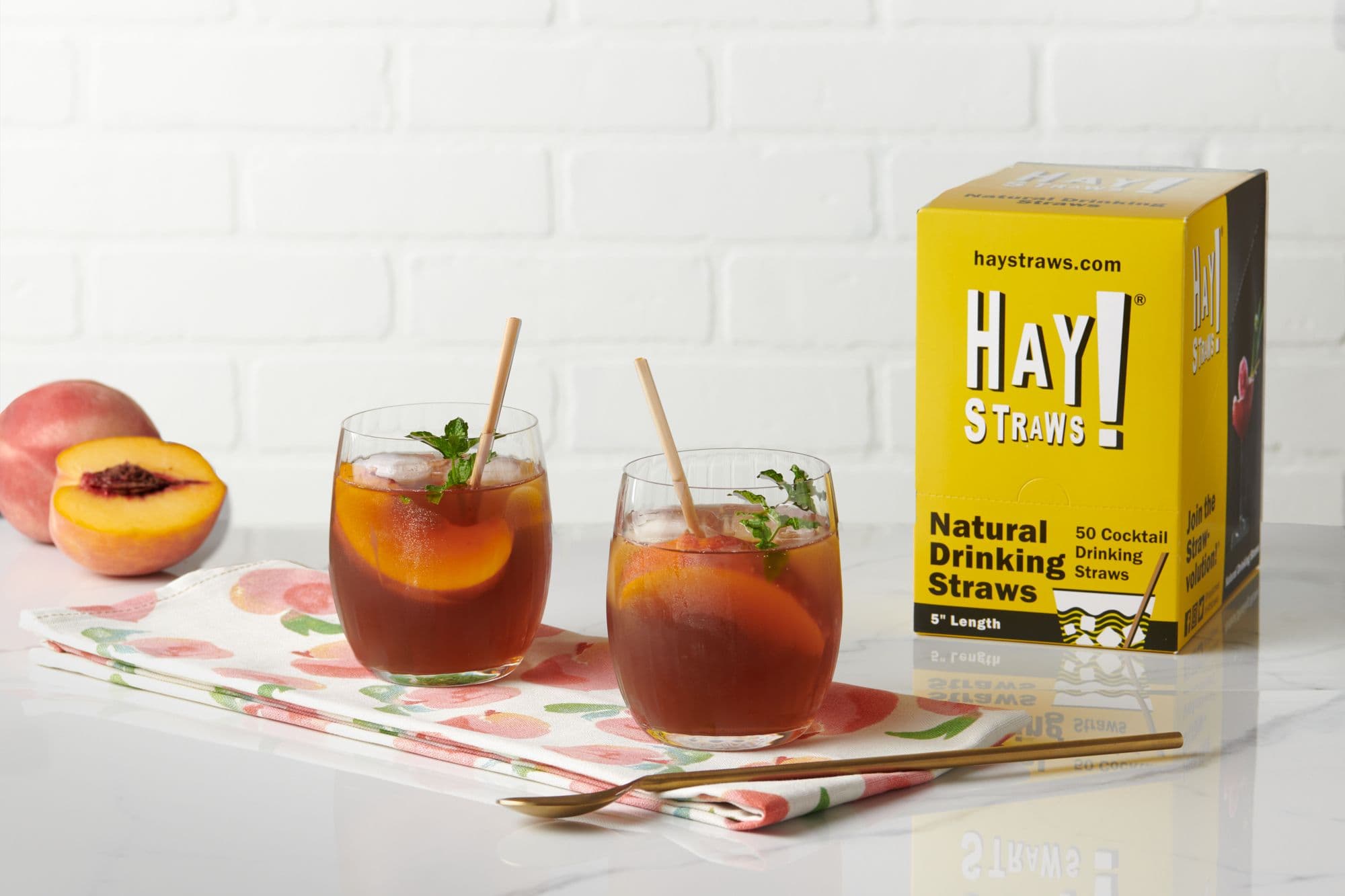
What led to the decision to use moso bamboo for HAY! Straws's cutlery, and what are its benefits over other materials typically used in single-use cutlery?
Bamboo is technically a grass - not wood, and that is one of its biggest benefits: it is renewable. When bamboo is harvested, the rhizomes or roots don't die; they regrow. Our bamboo is sustainably harvested, and the supplier is FSC-certified to ensure sustainable harvesting practices. Mature pieces of bamboo are cut out, leaving the younger growth to mature. Typically, Moso bamboo reaches maturity in about 5-6 years and grows abundantly compared to birch trees, from which most wooden cutlery is made. A birch tree takes 20-30 years to reach maturity, and once it is cut down, it no longer sequesters carbon, leading to increased erosion, disrupted ecosystems, and destroyed animal habitats.
Other benefits of bamboo include its natural antimicrobial properties and organic growth without pesticides. It's water-resistant, heat-resistant, and 100% compostable. Our bamboo cutlery is USDA certified Biobased and PFAS-free. Most single-use cutlery is made from non-recyclable plastic containing harmful chemicals derived from fossil fuels. While bioplastics may seem like a good solution to single-use plastic, they are only compostable in commercial composting facilities. Due to difficulty distinguishing between plastic and "compostable plastic," they often end up in landfills, where they are just as harmful as traditional plastic when they enter the natural environment.
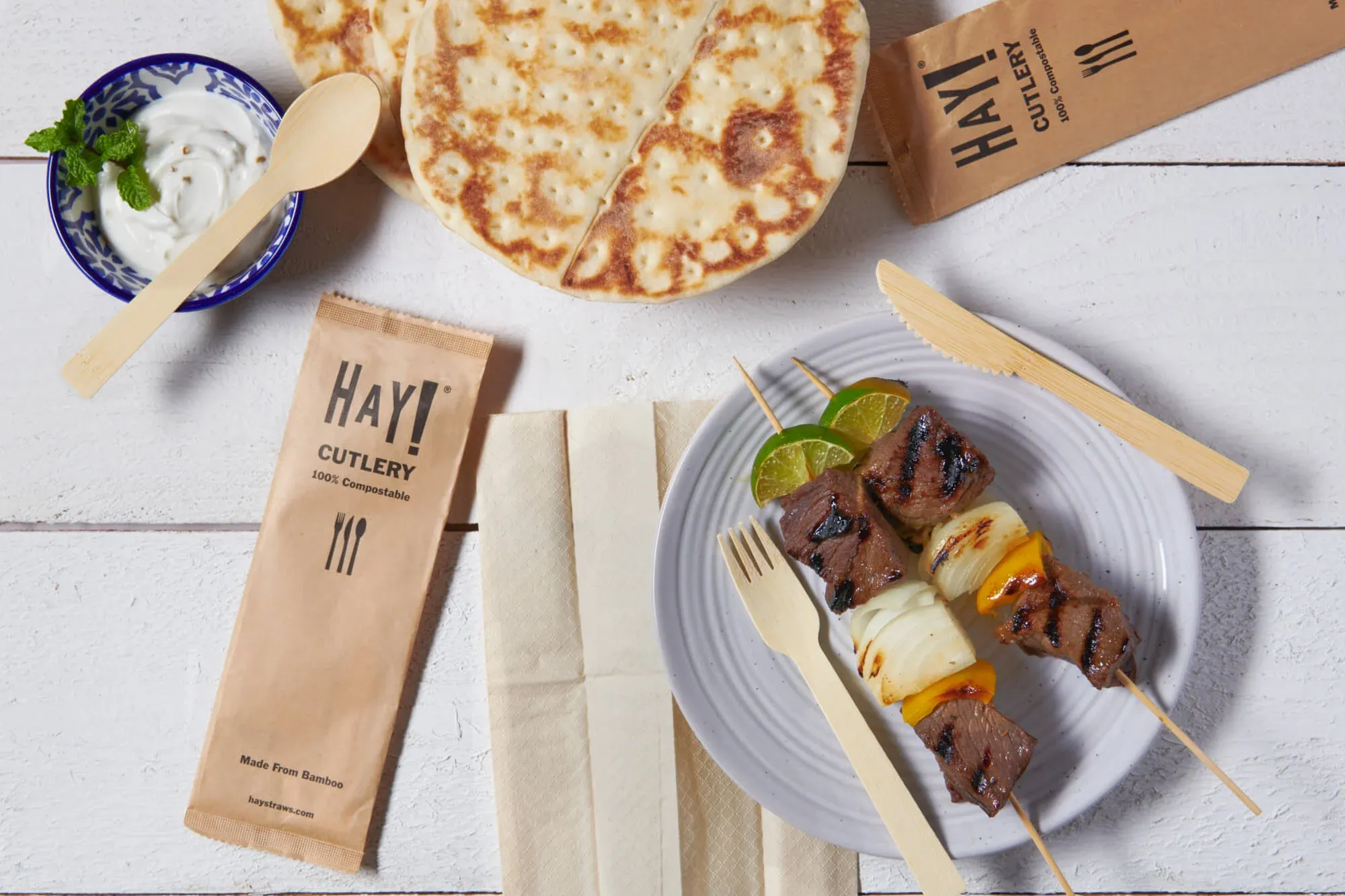
Looking at future product development, are there other plant-based materials HAY! Straws is considering for expanding your product line?
Yes, we are looking to add products that complement our current range of cutlery and straws. We are continuing to stick to our values of creating plant-based, plastic-free alternatives to single-use plastics using renewable resources.
Recent sourcing and testing have highlighted the flaws of current "green" alternatives, which upon closer inspection contain hidden plastic or bioplastics to help water-proof the item. These waterproofing agents contain harmful chemicals, and we are looking for better alternatives that are compostable and have a transparent ingredient list!
